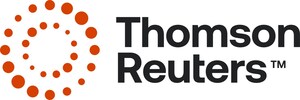
WASHINGTON, April 12, 2012 /PRNewswire/ -- The Mental Health Parity and Addiction Equity Act (MHPAEA) is unlikely to have a large effect on the growth rate of employer healthcare expenditures, according to two new studies conducted by researchers from the Healthcare business of Thomson Reuters working in conjunction with the Substance Abuse and Mental Health Services Administration.
(Logo: http://photos.prnewswire.com/prnh/20090507/NY12658LOGO)
The first study, "Spending Trends on Substance Abuse Treatment Under Private Employer-Sponsored Insurance 2001–2009," was published in the journal Drug and Alcohol Dependence. It examines patterns in substance abuse treatment spending and utilization between 2001 and 2009 to provide a baseline for assessing the effects of recent health policy changes.
The second study, "Mental Health Spending by Private Insurance: Implications for the Mental Health Parity and Addiction Equity Act," was published in the April 2012 issue of Psychiatric Services. It estimates the potential cost implications for employers under the MHPAEA, which mandates that group health plans that include both general and mental health/substance abuse benefits must cover the same level of benefits for both.
Together, the studies cite a small amount of total spending and low intensity of utilization of inpatient and outpatient services as primary reasons why the new law will not have a substantial cost impact on employers. The research shows that substance abuse spending has held steady as a low portion of all costs, comprising just 0.4% of all health spending in 2009.
Additionally, mental health and substance abuse spending accounted for only 5.2% of all health expenditures from 2001 through 2009 (2.2% if psychiatric drug spending is excluded). That spending contributed just 0.3% to the growth in total health expenditures with prescription drugs included, and 0.1% when prescriptions are not included.
"Employers need not be alarmed by the new coverage mandates of the MHPAEA," said Tami L. Mark, Ph.D., the paper's lead author and Senior Director, Thomson Reuters. "It seems clear, given the relatively low spending on, and low intensity of use of, mental health and substance abuse services, that the additional cost incurred by employers because of the mandate is likely to be negligible."
Data were compiled for the report from the Thomson Reuters MarketScan® Commercial Claims and Encounters Database, which provided private insurance claims records from approximately 30 million covered individuals annually.
For more information, or to access a copy of the "Spending Trends on Substance Abuse Treatment Under Private Employer-Sponsored Insurance 2001–2009," paper, click here. To access a copy of "Mental Health Spending by Private Insurance: Implications for the Mental Health Parity and Addiction Equity Act," click here.
About Thomson Reuters
Thomson Reuters is the world's leading source of intelligent information for businesses and professionals. We combine industry expertise with innovative technology to deliver critical information to leading decision makers in the financial, legal, tax and accounting, healthcare and science and media markets, powered by the world's most trusted news organization. With headquarters in New York and major operations in London and Eagan, Minnesota, Thomson Reuters employs more than 55,000 people and operates in over 100 countries. For more information, go to www.thomsonreuters.com.
SOURCE Thomson Reuters






Share this article